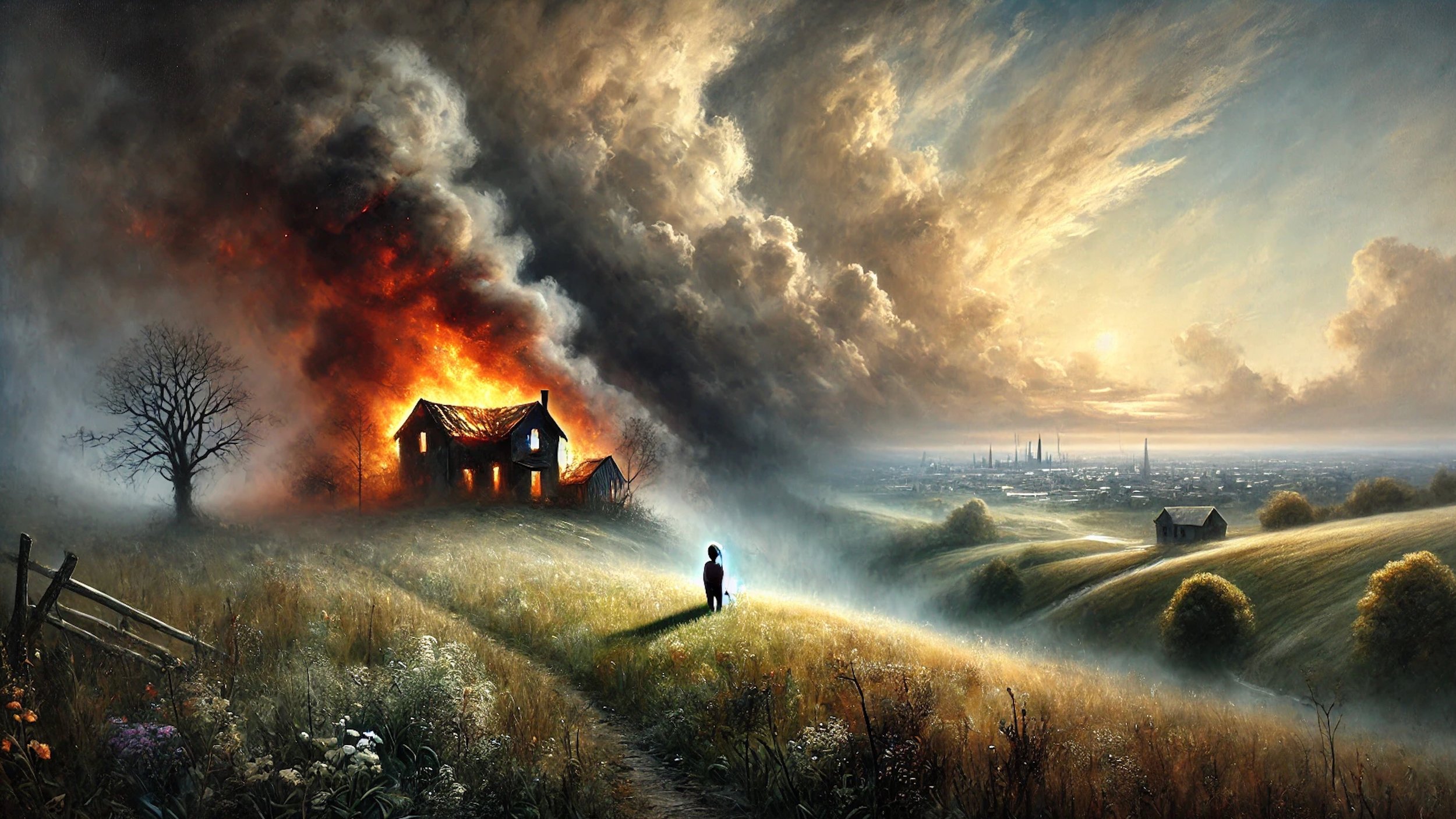About
The following is a prose poem based on an event that occurred long ago in my childhood. Normally, I like to pair these pieces with photography, but in this case, I decided to use the poem as the root of the prompt into the AI image maker, DALL-E 3. After a few iterations came the paired image. I hope that decision isn’t offensive to anyone, although I suppose it could be. As I was hesitating, I began to think about image processing for photography. The images are taken from the natural world and then processed through digital cameras and, especially for fine art photography, significantly processed and manipulated to the aesthetic of the artist. Much of that imaging software has forms of AI under its hood. While I’m not stating that images produced through AI image makers are just as authentic as those produced by the human eye and hand, it is almost impossible for modern photography not to be brushed with technology. I won’t do this often, but I like the etherial nature of the image as it relates to the writing. So, in an executive decision, I’m using it. Enjoy. Or not.
image by DALL-E 3 | inspired by this prose poem
It’s best if you don’t know me. You might project from a resume’s reflection, something I don’t care to be,
as if the tombstone label says it all. It certainly doesn’t burn bright. Doesn’t singe the sky like the flames
of years ago, a house afire near my aunt’s apartment.
Which was stunning to a six year old. Me. And my cousin, who was like a brother I now rarely see. We saw
the field and the smoke and trekked through the high grass to find one of those rural houses that stood upright
and alone, like the singular trees you might see in the Montana distance traveling a vein of road between nothing
but grass and sky.
Like the independent bear wading open mouthed in the river gnashing at the flickering fish leaping into waiting teeth.
But the house, its wide lonesome acreage rimming urban expanse, was walled by mountainous housing developments.
Far enough away that the neighbors wouldn’t feel the heat or smell the emberring wood planks, the porch of Sunday’s
days of rest smoking into soot.
A few people gathered at the fire, mesmerized and helpless and awed. As if the last horse alive was
cindering, a kicking smokey gallop into the earth. Even the firemen put away their hoses and gazed
at the burning sun.
My cousin and I watched the old place burn, its rage pushing us back. What I remember most were the
fire fighter’s hard safari helmets shining mirror-black at the flames’ edge. I imagined the men riding the side
of the red-beast truck, firm-chinned and coming to the rescue. I might have understood that years later if
a grave said, fireman, it would have been a good thing to be. And now near sixty years old, I’m certain that they
started the blaze.
So the fields could grow asphalt. And cul de sacs. And fire hydrants. And taxes for schools. And gymnasiums,
like the one, years later, where our pre-school daughter joined her class, each child up to the microphone asked
to imagine their own futures. She said that she didn’t know what she wanted to be.
How many homes now cover the field where the house burned? How many doctors and lawyers and teachers and
people adrift dreamt under the pitched asphalt roofs by then spread like goldenrod or purple astor or milkweed
across the land?
After the house burned, my cousin and I walked across the field where mounds of plowed black earth readied the grassy
fields for a blooming garden of homes. We climbed as high as we could and felt nothing but far away.
On the way back, I stepped on a nail and its rusty tip slipped through the sole of my shoe. I crumpled into the mud
and held my foot and cried for help and people walked by amused at the just-distant-enough adventure of little boys.
My cousin helped me up and people stared and I was glad they didn’t know me.
